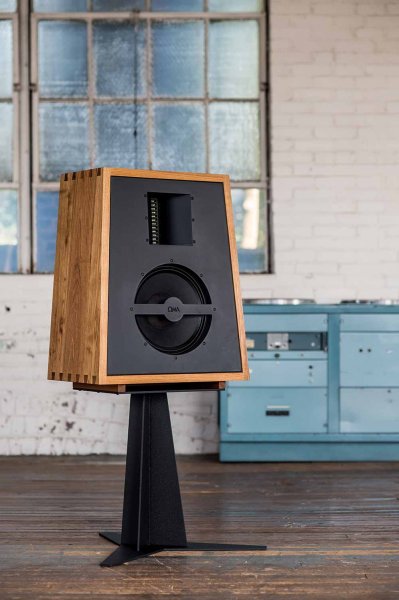To give an opposing argument
I think many people who call themselves Audiophile's cannot hear very well at all
Lol!!!!
To give an opposing argument
I think many people who call themselves Audiophile's cannot hear very well at all
View attachment 35063
I suppose in an earlier era, quality even worked its way into a simple cheese box.
I dont live too far from that house, I would like to see if anything remains of that shop.
jn229...Does your shop have a hand powered drill, and an old set of WW2 headphones hanging on a nail on the wall too ?
I suppose because they are either veneer over MDF or some kind of high tech cabinet, not many use solid wood.No head phones, but I do have a hand drill and for larger holes I use a brace and bit. I am not a carpenter, I simply have my father's old tools to maintain my home. Like my father I only buy a tool when needed around the house.
With today's C&C machines I wonder why more loudspeakers do not have dovetailed joints, if not for strength then looks.

Two very good starting points to the discussion:
I think we like to give a bit more credit to our own special physical abilities than is warranted. Most certainly some have better hearing acuity and awareness of tone, just as some have significant deficiencies in this regard.
I liken the act of critical listening to that of anyone who becomes skilled and practiced in any hobby or sport. I've long worked from the perspective that the same sound hits all of our ears. The differences like in how we process and focus on that sound. Like any skill, it improves with experience, familiarity, and exercising the muscle; be that a physical muscle or mental processing power. There are endless products for very specific specialty sports, activities, and of course culinary/beverage interests. Some are predisposed to refine certain skills more quickly, but most all can hugely improve their skill in any such area with practice and experience. Some are more skilled users and less analytical, and certainly vice-versa.
Outside of hi-fi and sound reproduction, my other obsessive interest/sport/hobby is alpine skiing. It helps that I've been on skis since the age of 5, and have skied 35 of my 36 years since then. Having taken many weeks of lessons at Colorado resorts growing up and then getting lucky enough to ski with some who let me well past my previous comfort zone, I'm now a rather technical skier who can adapt to most any snow condition... if only I made enough time to keep in the physical condition to fully take advantage.The point here is that being as analytical and engineering minded as I am, I will immediately notice differences in gear, down to a lazy edge tuning. While many intermediates might try two different model skis and comment how one is "easier to turn" and another is "super fast," I'm thinking about separate details of how quick a ski is edge to edge, how is the turn initiation in different snow conditions, what shape turn the ski prefers and can be made to carve, and how stable a ski is in different snow and what parts of the ski are contributing to that feel. If for some reason I decided to bail on the audio world, I might go into designing skis.
I'm sure many of you have other interests and pursuits which you have similar acuity to gear and details. A great golfer will feel subtle differences in golf balls and club designs that I would only notice more generally, just as I'm sure avid tennis players would be very sensitive to every detail of a tennis racket, or a great chef of knife qualities. The point is that while we have interests and dispositions, these are sensitivities that are learned, practiced, and refined. I fondly remember a handful of experiences in local audio stores and playing with friend's systems in college and after where certain qualities of a sound system were initially pointed out and demonstrated in a way it finally clicked, just like the first time I got on a pair of skis with modern sidecut/shape allowing both edges to sweep through high speed turns like rails on a roller coaster.
True, most audiophiles I know are older...the older we get the more our hearing degrades.
Guess it really doesn't matter if we hear well or not, its a singular experience and enjoyed none the less.
I dont particularly care for the connotation "audiophile", it evokes images of equipment junkies.
I am sure a certain percentage of the audio populations falls under that description.
Regardless of why we get into the hobby, in the end we keep at it because years of refining our abilities, sets us apart form those who music does nothing for other than a "thats nice" reaction.
Greg
People listen differently.
EVERYBODY hears things differently.
There are age concerns, trauma from high volume, and anatomic variations in the inner ear, diameter and length of the ear canal and even the shape of the earlobe affects the way sound is heard.
| Steve Williams Site Founder | Site Owner | Administrator | Ron Resnick Site Owner | Administrator | Julian (The Fixer) Website Build | Marketing Managersing |






